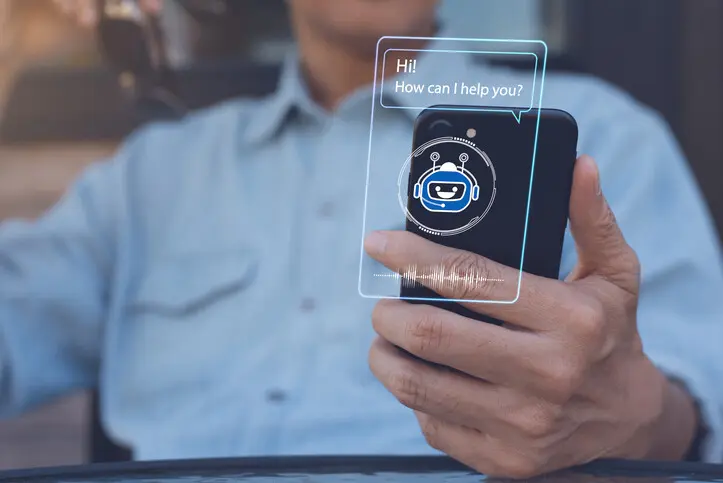
How Chatbots Powered by NLP Are Enhancing Mobile App Experiences
By Udit Agarwal

In today’s digital age, customer service is evolving unprecedentedly, thanks to technological advancements. One of the most significant developments is the integration of chatbots powered by Natural Language Processing (NLP) into mobile apps. These intelligent virtual assistants are revolutionizing how businesses interact with customers, offering improved efficiency, personalization, and overall user experience. This article delves into how NLP-enhanced chatbots transform customer service within mobile apps.
The Rise of Chatbots in Customer Service
It has become a staple in modern customer service strategies. These AI-driven tools simulate human conversation, allowing users to interact with digital platforms as if speaking with someone. Initially, chatbots were quite basic, relying on predefined scripts to respond. However, the advent of NLP has drastically improved their capabilities, enabling them to understand and process human language more effectively.
What is Natural Language Processing (NLP)?
Natural Language Processing (NLP) is a branch of artificial intelligence that concentrates on how computers and humans communicate through natural language. NLP enables machines to understand, interpret, and generate meaningful human language. This technology is critical for chatbots as it allows them to comprehend user inputs more accurately, recognize context, and provide more relevant responses.
Enhancing Mobile App Experiences with NLP-Powered Chatbots
24/7 Availability
One of the primary benefits of integrating NLP-powered chatbot into mobile apps is their ability to offer round-the-clock customer service. Unlike human agents who have limited working hours, chatbots can operate 24/7. This ensures assistance whenever needed, improving overall satisfaction and loyalty.
Personalization
NLP enables chatbots to deliver personalized experiences by analyzing user data and interaction history. By understanding the context of previous conversations and customer preferences, chatbots can tailor their responses to meet individual needs. For example, if a customer frequently asks about shipping details, the chatbot can proactively update their orders without being prompted.
Efficient Query Resolution
Traditional customer service often involves long wait times and multiple transfers between agents. NLP-powered bot streamline this process by quickly understanding and addressing customer queries. They can handle many questions, from simple FAQs to more complex issues, and escalate to human agents only when necessary. This speeds up resolution times and frees human agents to focus on more critical tasks.
Natural and Engaging Conversations
The ability of NLP to understand and generate human-like language makes interactions with bots feel more natural and engaging. Customers are more likely to feel comfortable and satisfied when conversing with a chatbot that understands their language nuances, including slang, idioms, and regional expressions. This enhances the overall user experience and encourages more frequent mobile app use.
Data Collection and Analysis
Bots collect valuable data from every interaction, giving businesses insights into customer behavior and preferences. NLP plays a crucial role in analyzing this data to identify trends, joint issues, and areas for improvement. Companies can use these insights to refine their products, services, and customer service strategies, continuously enhancing the mobile app experience.
Real-World Applications and Success Stories
Several companies have successfully integrated NLP-powered chatbots into their mobile apps, revolutionizing customer service operations.
E-commerce:
Major e-commerce platforms like Amazon and Alibaba use chatbots to handle customer inquiries about orders, returns, and product information. These chatbots provide instant responses, improving customer satisfaction and reducing the burden on human support teams.
Banking:
Banks like Bank of America and HSBC have implemented chatbots to assist customers with account management, transaction history, and financial advice. NLP allows these chatbots to understand complex banking terms and provide accurate information, enhancing the user experience.
Healthcare:
Healthcare providers use chatbots to schedule appointments, provide medical information, and remind patients about medication. Advanced NLP enables these chatbots to handle sensitive health queries accurately.
Challenges and Future Directions
While NLP-powered chatbots offer numerous benefits, there are still challenges to address. Ensuring data privacy and security is paramount, as chatbots handle sensitive customer information. Additionally, continuous advancements in NLP are necessary to improve chatbots’ accuracy and contextual understanding.
Looking ahead, the future of chatbots in mobile apps is promising. As NLP technology evolves, we can expect even more sophisticated and intuitive chatbots that can handle increasingly complex tasks. Integration with other AI technologies, such as machine learning and predictive analytics, will further enhance their capabilities, providing an even more seamless and personalized customer experience.
Conclusion
NLP-powered chatbots are revolutionizing customer service by providing efficient, personalized, and engaging interactions within mobile apps. They offer 24/7 availability, quick query resolution, and valuable insights through data analysis. As technology advances, these chatbots will play an increasingly vital role in shaping the future of customer service, ensuring that businesses can meet the evolving needs of their customers with ease and sophistication. By embracing this technology, companies can enhance customer service and gain a competitive edge in the market.